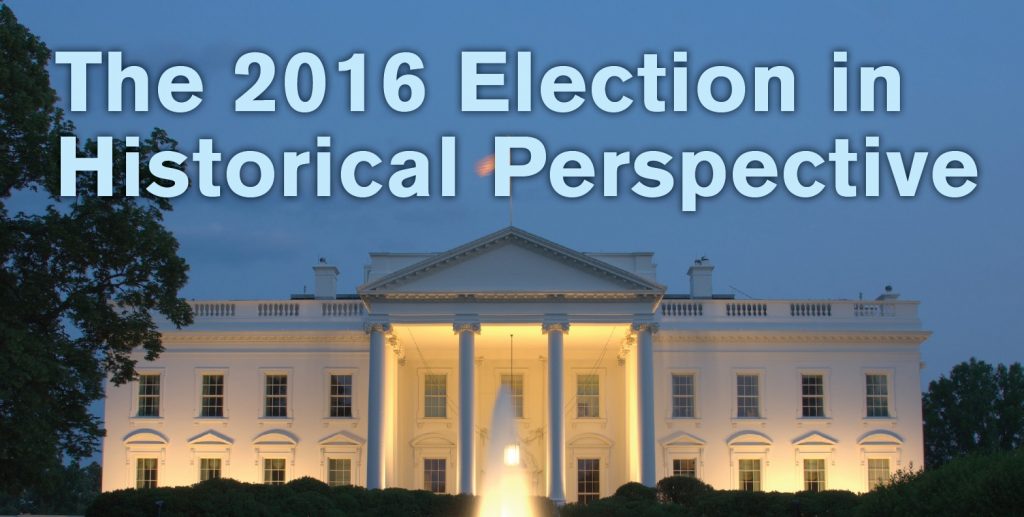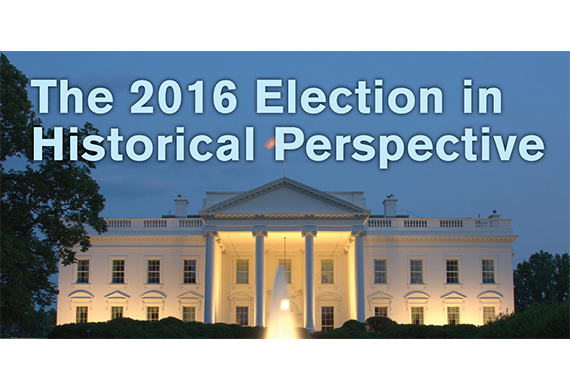History, PoliSci and Black Studies sponsor post-election discussion forum
 Faculty leaders in the Departments of History, Political Science and Black Studies joined together on Nov. 15 to host an open forum, “The 2016 Election in Historical Perspective,” designed to allow students to ask questions, share their thoughts and process recent political events within a broader context.
Faculty leaders in the Departments of History, Political Science and Black Studies joined together on Nov. 15 to host an open forum, “The 2016 Election in Historical Perspective,” designed to allow students to ask questions, share their thoughts and process recent political events within a broader context.
The program was emceed by Andy Evans, associate professor and department chair of history, and attended by nearly 200 SUNY New Paltz students, faculty and staff.
“I see this event as a chance to affirm our values as an institution: critical thinking and inquiry, open dialogue, interdisciplinarity, civil and rational discourse, and diversity,” Evans said. “This is what we do here at New Paltz: we critically analyze the world around us using the intellectual tools and technologies we are studying, and we respectfully and rationally engage with challenging ideas.”
The event began with a series of brief remarks by faculty members, each intended to provide background for discussion from distinct areas of academic specialization. Faculty speakers included:
- Lee Bernstein, professor of history, who described resistance movements from the 1970s and 1980s as models for contemporary political engagement.
- Nancy Kassop, professor of political science, who detailed the processes and structures that define the executive branch, and how these can be expected to affect a new administration’s policy-making.
- Mark Colvson, dean of the Sojourner Truth Library, who shared his experiences as creator and host of “Conversation One,” a weekly face-to-face discussion open to the entire New Paltz community, about the social benefits of honest, respectful dialogue.
- Cruz Bueno, assistant professor of Black Studies, who drew on her research of economic disparity to appeal on behalf of communities that feel marginalized or threatened by the election results.
- Reynolds Scott-Childress, assistant professor of history, who referred to Bill Bishop’s book “The Big Sort” and the concerns it raises about the cultural and political divisions between American citizens living in different areas.
- Susan Lewis, associate professor of history, who discussed the political ramifications of sexism and compared the 2016 election outcome to the failed effort to pass an Equal Rights Amendment during the 1970s and early 1980s.
Having absorbed these different takes on the election outcome, the students in attendance were then invited to conduct their own discussions. Audience members broke off into small groups for faculty-facilitated conversations on topics political, cultural, historical and personal.
Visit the Departments of History, Political Science and Black Studies online.

